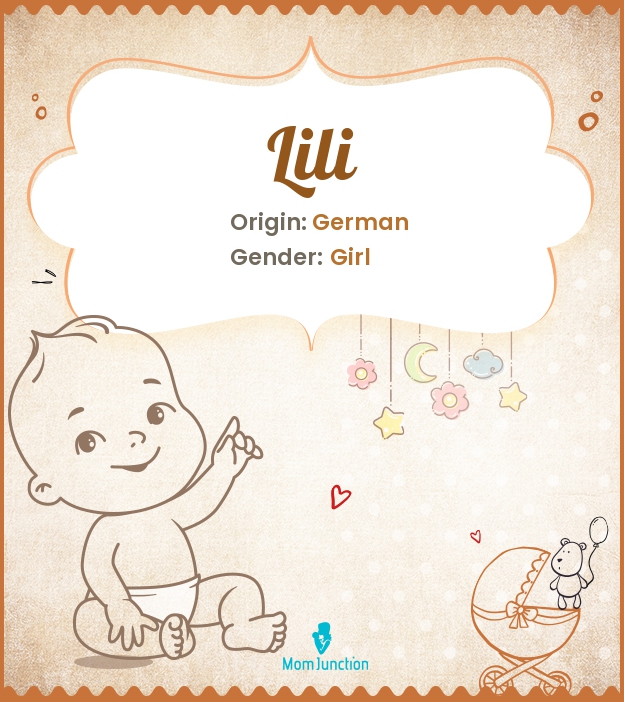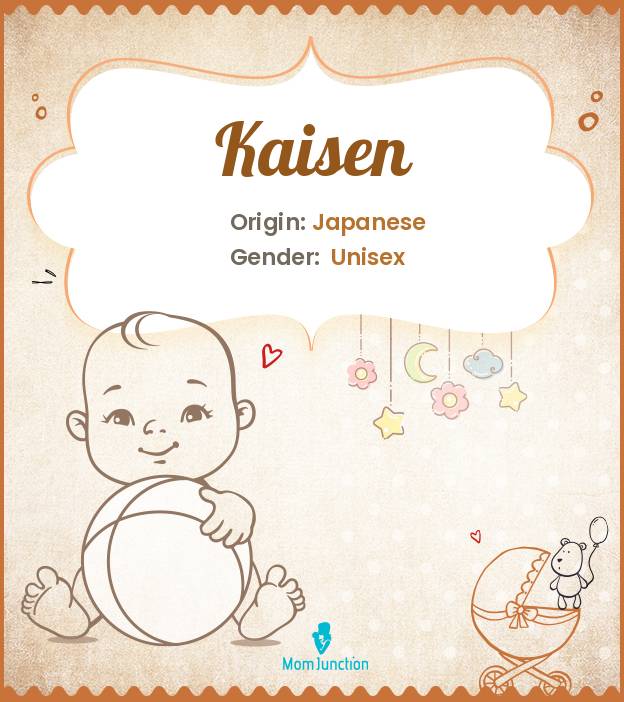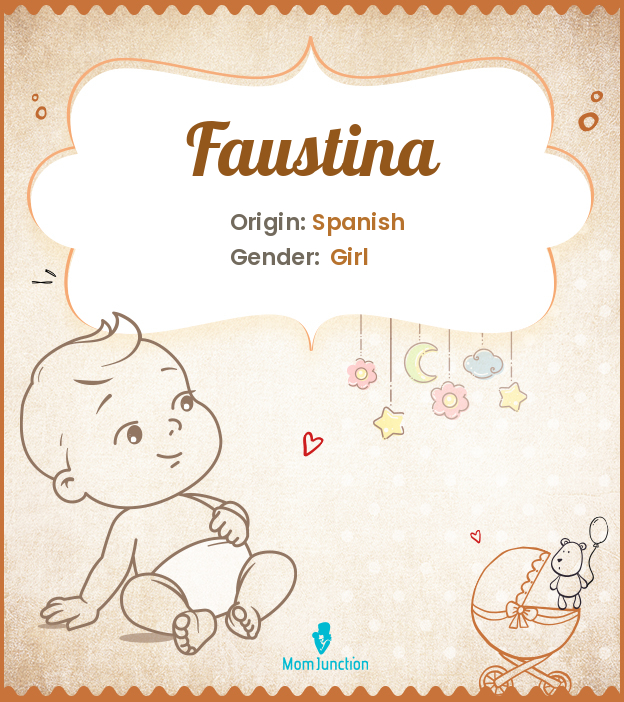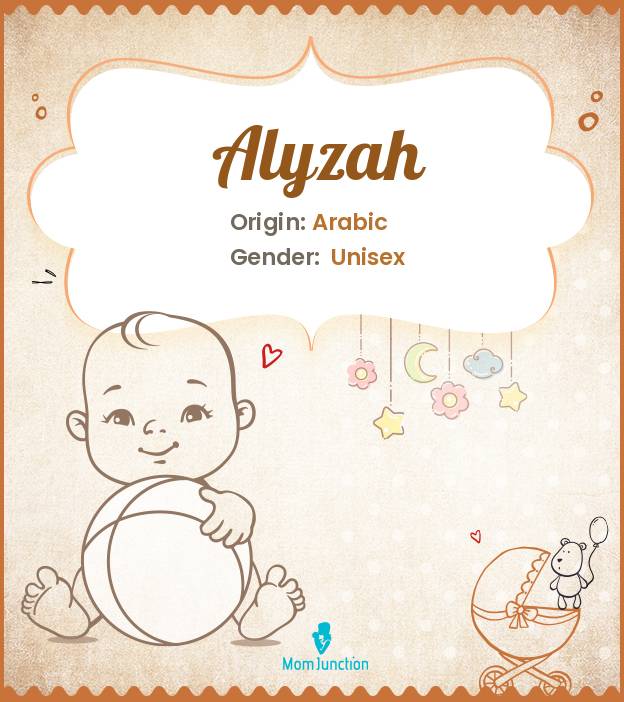
Image: ShutterStock
Jewish surnames are mostly related to an individual’s native place and occupation. Some traditional surnames, such as Sofer (scribe), Kantor (Cantor), and Cohen (priest), are related to religion too. While some surnames such as Israel, Cohen, and Levi are purely Jewish, some are of German, Russian, or Polish origin.

Since the Jews are spread worldwide, their surnames can be found across the globe. These surnames have been influenced by the cultural assimilation, geographic diversity of the community, and the Hebraization of surnames (1).
This post features a compilation of Jewish surnames with fascinating history behind each. Connect with your Jewish roots by choosing a meaningful surname rich in heritage and history.
Key Pointers
- Jewish last names typically denote a person’s birthplace and job.
- Over time, Jews have modified surnames to contemporary standards; for example, Simonovitz might become Simmons.
- Most Jewish surnames end with suffixes like ler, feld, berg, stein, and witz.
- Certain well-known surnames within the Jewish community, such as Sofer, Kantor, and Cohen, hold religious significance.
List of Common Jewish Surnames With Meanings
1. Aaronson
This is a patronymic surname that means ‘son of Aaron.’ The family name ‘Aaron’ is derived from the Hebrew name ‘Aharon’ meaning ‘mountain of strength’ or ‘high mountain.’
2. Abelman
It is an Ashkenazi Jewish surname and a patronymic form of the personal name Abel. This is taken from the Hebrew name ‘hevel’ meaning ‘breath,’ ‘vanity’ or ‘vapor.’
3. Abram
This is a patronymic name derived from the reduced form of the name ‘Abraham’ that means ‘father of a multitude.’
4. Acker
This is an Ashkenazi Jewish last name of German or Old English origins with the meaning ‘plowed field.’
5. Adelman
This is an Ashkenazi Jewish name and is an ornamental name taken from the Yiddish word ‘eydl’ or German word ‘edel’ meaning ‘nobility.’
6. Appelbaum
This is a variant spelling of the German name ‘Apfelbaum’ that means ‘apple tree.’ It is also an occupational name from a grower of the fruit.
7. Bach
This is an Ashkenazi Jewish ornamental last name taken from the German word ‘Bach’ meaning a ‘creek’ or a ‘stream.’
8. Becker
It comes from the Middle High German word ‘becker’ meaning a ‘baker.’ It is an occupational surname for those who have baked bread or made bricks or tiles in a kiln.
9. Benowitz
It is from the eastern Ashkenazic family line and patronymic name from the nickname of the personal name ‘Benjamin.’ It comes from the Hebrew name ‘Binyamin’ meaning ‘son of the south’ or ‘son of the right hand.’
10. Berenson
This is an Ashkenazic patronymic surname. It is a combination of the Yiddish words ‘ber’ meaning ‘bear’ and German ‘sohn’ meaning ‘son.’
11. Berg
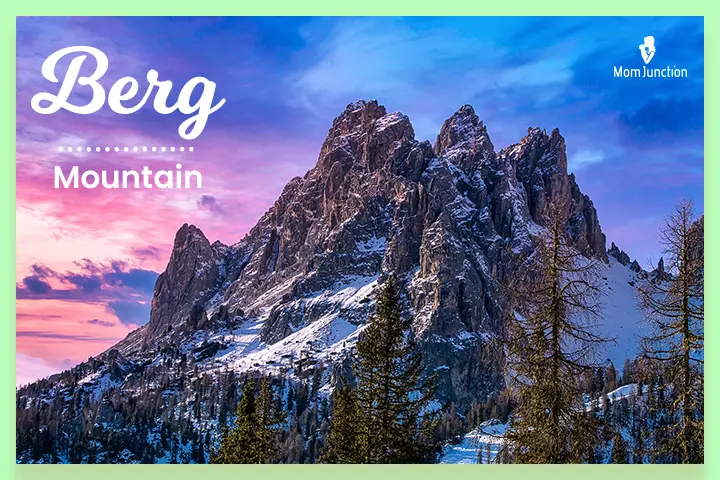
This is an ornamental name derived from the German word ‘berg’ meaning ‘hill’ or ‘mountain.’ It is also used as a short form for surnames with ‘berg’ as the final element. For instance, Goldberg and Schonberg.
12. Bing
It is an Ashkenazi Jewish name. This is a toponymic name and derived from the Old English word Byng meaning ‘a dweller of the hollow.’ The name could also refer to someone who originally belonged to the town of Bingen in Germany.
13. Blau
It means ‘blue’ in German. It is an Ashkenazi Jewish ornamental surname.
14. Blum
It is the Yiddish word for ‘flower’ and may have been a toponymic or occupational name.
15. Broder
It is a Yiddish variant of ‘Brodsky,’ which is a toponymic name for someone from Brody, a place in Ukraine.
16. Cohen
It comes from the Jewish word ‘kohen’ meaning ‘priest.’ This surname is derived from the priestly family line who served at Jewish temples in ancient times.
 Trivia
Trivia17. Cooperman
This is an occupational name for a ‘coppersmith’ derived from Yiddish word ‘kuper’ meaning ‘copper.’
18. David
This is a popular name among Jews and comes from the Hebrew word ‘Dawid’ meaning ‘beloved.’
19. Diamond
This is an anglicized form of the Jewish surname ‘Diament,’ which means diamond in Yiddish. The word ‘diamond’ comes from the Late Latin word ‘diamas’ that means ‘invincible.’
20. Dillon
This is an Ashkenazi Jewish last name of uncertain origin. It is believed to be an ornamental name from the Biblical place ‘Dilon’ that likely meant ‘loyal and true.’
21. Dreyfus
This toponymic name is a variation of ‘Trevis,’ which was among the old names of the city of Trier in present-day Germany. The name originally referred to people who came from the city.
22. Drucker
It is the Yiddish and German word for a ‘printer.’ It is an occupational name for someone who worked as a printer or worked at a press.
23. Ecker
It is a toponymic name derived from the Yiddish word ‘eck’ meaning a ‘corner.’ Another origin of the name could be the word ‘eker’ that comes from a Yiddish dialect and means ‘chopper’ or ‘cutter.’
24. Edelman
An Ashkenazi Jewish ornamental name combined with two Yiddish elements of ‘edel’ meaning ‘noble’ or ‘splendid’ and ‘man’ meaning a ‘man.’
25. Efron
This biblical surname comes from the Book of Joshua where it is the name of a mountain.
26. Ehrlich
It is a name that comes from the German word ‘ehrlich’ meaning ‘honest’ or the Yiddish word ‘erlekh’ that also means ‘honest or virtuous.’
27. Einstein
This surname is an ornamental name combined of two German elements ‘ein’ meaning ‘one’ and ‘stein’ meaning ‘stone.’
28. Elkayam
The name is the combination of two Hebrew elements ‘el’ or ‘elohim’ meaning ‘god’ and ‘kayam’ meaning ‘exists.’ The name thus means ‘god exists’ or ‘god is omnipresent.’
29. Elkin
It is a metronymic form of the Yiddish feminine personal name ‘Elke,’ with the suffix ‘-in.’ The name ‘Elke’ is the feminine version of the name ‘Elkanah’ that means ‘god-created.’
30. Engel
It is an ornamental name from the German word ‘engel’ meaning an ‘angel.’
31. Ewen
It comes from the Hebrew word ‘aven’ or ‘avna’ meaning ‘stone.’
32. Ezra
Ezra is a Biblical name and taken from the Hebrew word ‘ezra’ meaning ‘help.’
33. Fabrikant
It is an occupational name for a ‘manufacturer’ of any form of goods or a factory owner. The name comes from the word ‘fabrikant’ and has its origin in Polish, Russian, German languages.
34. Fairman
It is an anglicized form of the Jewish name ‘Feuerman’ that in German means ‘fireman.’ The root element in the name is ‘feur’ meaning ‘fire’ in German.
35. Falk
It is an ornamental name from the Yiddish word ‘falk’ meaning ‘falcon.’
36. Fein
This is an Ashkenazi Jewish surname that is derived from the Yiddish word ‘fayn’ meaning ‘excellent’ or ‘fine.’
37. Feigenbaum
This is an ornamental personal name and means ‘fig tree’ in German.
38. Feinberg
This is an ornamental name composed of the German words ‘fein’ meaning ‘fine’ and ‘berg’ meaning ‘hill’ or ‘mountain.’
39. Feldman
This is an ornamental extension of the name ‘Feld’ that means ‘field’ in German and Yiddish.
40. Fingerhut
It means ‘finger hut’ in Yiddish and refers to a ‘thimble,’ which is a metal cap worn on the finger tip by tailors. This name is likely an occupational surname and originally referred to a family line of tailors.
41. Finkelstein
It is an ornamental name derived from the Yiddish elements ‘finkl’ meaning ‘sparkle’ and ‘stein’ meaning ‘stone.’
42. Fischler
This is a variant spelling for ‘Fischer’ which is an occupational name for fisherman. The name is more commonly found among Ashkenazi Jews.
43. Fishman
It means ‘fisherman’ in German and Yiddish languages. The name is an occupational one.
44. Flint
It is an ornamental name that comes from the German word ‘flinte’ meaning ‘shotgun.’
45. Franco
This surname is adopted from the Spanish personal name ‘Franco’ meaning ‘free.’ It was used as a nickname for freed slaves.
46. Frisch
This was used as a nickname and was derived from the Yiddish word ‘frish’ meaning ‘fresh’.
47. Garfinkel
This is an ornamental name from Yiddish word ‘gorfinkl’ meaning ‘carbuncle.’ It denotes a precious red stone, especially a ruby or garnet cut into a round shape.
48. Gelb
This is a variant of the word ‘gel,’ which means ‘yellow’ in Yiddish. The name likely began as a nickname for people with light hair.
49. Gelber
This surname is the extended version of the surname ‘Gelb’ and also comes from the Yiddish word ‘gel’ meaning ‘yellow.’
50. Geller
It is derived from the word ‘gel,’ which is the Yiddish word for the color yellow. The name was originally a nickname for someone with light hair.
51. Ginsberg
It is an ornamental form of the name ‘Ginsburg,’ which is a toponymic name referring to those who lived along the river Gunz in Germany.
52. Glaser
It is the German word for ‘glazier.’ It is an occupational name for someone who worked as a glassblower or glazier – a person who fits glass panes and windows.
53. Glick
It is an ornamental name derived from the German name ‘Gluck’ meaning ‘luck,’ ‘good luck,’ ‘bliss’ or ‘good fortune.’
54. Gold
This is an ornamental name of Yiddish origin and means ‘gold,’ the precious compound.
55. Goldbaum
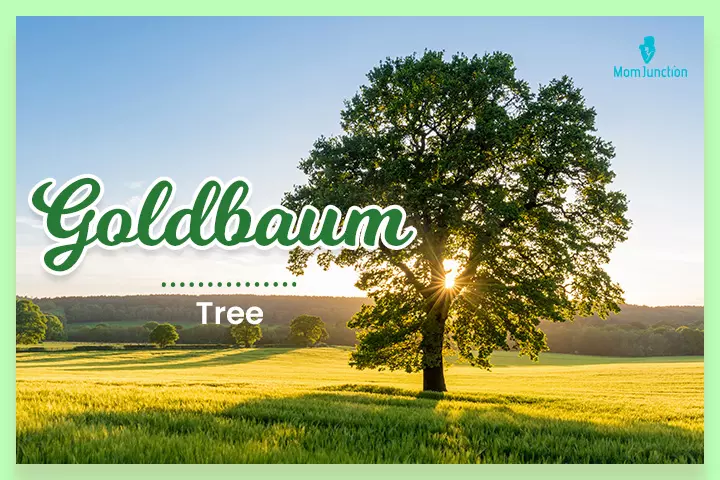
This surname is an ornamental name composed of the word ‘gold’ and the German word ‘baum’ meaning ‘tree.’
56. Goldberg
It is a toponymic name referring to someone who belonged to the town of Goldberg in Germany. The name is composed of the word ‘gold’ and the German word ‘berg’ meaning ‘mountain.’
 Quick fact
Quick fact57. Goldblum
This last name is an ornamental name made from the words ‘gold’ and the German word ‘blum’ meaning ‘flower.’
58. Goldman
It is a metronymic form of the Yiddish feminine personal name ‘Golde’ meaning ‘gold.’
59. Goldschmidt
It is the German word for ‘goldsmith’ and is an occupational surname for someone who came from a family line of goldsmiths.
60. Gordon
This is a toponymic name referring to someone who belonged to the city of Grodno in Belarus.
61. Green
It is an anglicized form of the Yiddish name ‘Grin’ or German ‘Grun.’ Both words mean the color green in their respective languages.
62. Greenberg
It is the anglicized form of the German surname ‘Grunberg’ that means ‘green mountain.’ The name may have referred to someone from any of the several places called Grunberg in Poland and Germany.
63. Gurewitz
It is a variant spelling of ‘Horowitz,’ which is a toponymic name derived from Horovice, a town in the Central Bohemian region of Czech Republic.
64. Guttenberg
It refers to an ornamental name combined of the Germanic elements ‘gut’ meaning ‘good’ and ‘berg’ meaning ‘hill’ or ‘mountain.’
65. Haim
It is derived from the Yiddish personal name ‘Khayim’ that comes from the Hebrew word ‘chayyim’ meaning ‘life.’
66. Halpert
It is a variant of the name ‘Halpern’ that is a toponymic name for the inhabitants of Heilbronn city in Germany. This city had a large Jewish population in the medieval ages.
67. Hamburg
This is a toponymic name for someone who came from the city of Hamburg in Germany. The name of the city is composed of the Germanic elements ‘ham’ meaning a ‘water meadow’ and ‘burg’ meaning a ‘fortified town.’
68. Hellberg
This name is derived from the German elements ‘hell’ meaning ‘bright’ or ‘light’ and ‘berg’ meaning ‘hill’ or ‘mountain.’
69. Heller
It is derived from the German word ‘hell’ that means ‘bright’ or ‘light.’ This was likely used as a nickname for a person with a light complexion.
70. Himel
It is an ornamental name derived from the German word ‘himmel’ meaning ‘heaven.’
71. Hirsch
This is an Ashkenazi Jewish name derived from the ‘Yiddish’ word ‘hirsh’ meaning ‘deer.’
72. Horowitz
It is a name that originally belonged to a family line, which came from Horovice, a town in the Czech Republic.
73. Huberman
It is an elaborate form of the name ‘Huber,’ which is derived from the Yiddish word ‘hober’ meaning ‘oats.’ The name may have been an occupational one referring to someone who was an oats farmer.
74. Hyatt
This surname is an anglicized spelling of the name ‘Chayat’ that is derived from the Yiddish word ‘khayet’ meaning ‘tailor.’
75. Isaac
This is taken from the Hebrew personal name Itzhak or Yitzhak, which means ‘he laughs.’ It is a biblical name derived from Judaism.
76. Israel
This surname is taken from the Hebrew personal name ‘Yitzchaq’ meaning ‘may he smile,’ ‘may he rejoice,’ or ‘may he always stay happy.’
77. Jablonsky
It is the variant of the name ‘Jablonski’ that is derived from the word ‘jablon,’ which is the Polish word for ‘apple tree.’
78. Janowicz
This last name refers to someone who came from any of the places called Janowice, Janow, or Janowo in Poland.
79. Kane
It is an altered spelling of ‘Cohen’ that is taken from the Hebrew word ‘kohen’ meaning ‘priest.’
80. Kaplan
It is a Germanic form of ‘Cohen,’ a priest who serves at a Jewish temple. The word ‘kaplan’ means ‘chaplain’ in German and ‘priest’ in Polish.
81. Katz
It is derived from the Hebrew title ‘Kohen Tzedek’ meaning the ‘priest of righteousness.’
82. Kaufman
It is derived from the Yiddish word ‘koyfman,’ which means ‘merchant.’
83. Kempler
The name is composed of the South German word ‘kampel’ meaning ‘comb,’ and the suffix -er. This surname refers to those with the occupation of comb making.
84. Kilman
It is an Ashkenazi Jewish name composed of the Yiddish words ‘kil’ meaning ‘cool’ and ‘man’ meaning ‘man.’ The name means ‘cool man’ and may have begun as a nickname.
85. Kleinfeld
This surname is made from the Yiddish elements ‘klein’ meaning ‘small’ and ‘feld’ meaning ‘field.’
86. Knopp
It is a metronymic occupational name derived from the Yiddish word ‘knop’ meaning ‘button.’
87. Koppel
It is derived from Yiddish personal name ‘kopl,’ which is a nickname of ‘Jacob’ meaning ‘the supplanter’ In Hebrew.
88. Koven
It is a shortened form of the eastern Ashkenazi Jewish name ‘Kovenski’ or ‘Kovensky’ that are toponymic names referring to those from a place called Kaunas in Lithuania.
89. Kovitz
It is a variant of ‘Kowitz,’ which is the German form of the Slavic word ‘kovac’ meaning ‘smith.’
90. Krakow
It is an eastern Ashkenazi Jewish toponymic surname referring to those whose ancestors came from the city Krakow in Poland.
91. Kroll
It comes from the Polish word ‘krol’ that means ‘king.’ The name could be an occupational one for someone working for an aristocratic family. Another origin of the name could be the Polish word ‘krolik’ that means ‘rabbit.’
92. Krone
It is an ornamental name taken from the German word ‘krone’ meaning ‘crown.’
93. Kravitz
It is an occupational name taken from the Polish word ‘krawiec’ that means a ‘tailor.’
94. Kugel
It is an Ashkenazi Jewish name derived from the Yiddish word ‘kugl’ that means a ‘pudding.’
95. Lachman
It is a variant form of the Hebrew name ‘Nachman’ that means ‘consoler’ or ‘comforter.’
96. Landman
This occupational name is from the Middle High German word ‘lant’ referring to someone who was a landlord. The name could also be a toponymic one referring to someone from places called Landau in Europe.
97. Laubenstein
It is a combination of the German words ‘laub’ meaning ‘leaves’ or ‘foliage’ and ‘stein’ meaning ‘stone.’
98. Lehrer
It is an occupational name for someone who originally worked as a teacher. The name is derived from the German word ‘lehrer’ or Yiddish ‘lerer,’ both meaning ‘teacher.’
99. Leib

It comes from the Yiddish word ‘leyb’ meaning ‘lion.’
100. Leichtman
This surname is derived from the Yiddish elements ‘laykht’ meaning ‘light’ and ‘man’ for ‘man.’ The name could have begun as a nickname.
101. Levi
It is a name that is derived from the Hebrew word and means ‘joined,’ ‘attached,’ or ‘united.’
102. Levine
It is a variant spelling for ‘Levin,’ that comes from ‘Levi’ meaning ‘united’ in Hebrew.
103. Liberman
It is composed of the Yiddish elements ‘libe’ meaning ‘love’ or ‘loved’ and ‘man’ meaning ‘man.’ The name thus means ‘beloved man,’ and must have started as a nickname.
104. Lindenberg
This toponymic surname is composed of the German word ‘linden’ meaning ‘linden tree’ and ‘berg’ meaning ‘hill’ or ‘mountain.’
105. Lipman
It is a Yiddish personal name that is composed of the Middle High German elements ‘liep’ meaning ‘beloved’ and ‘man’ meaning ‘man.’
106. Lipschitz
It is another variant of the surname ‘Lipschutz.’ It is a toponymic name referring to someone from places Liebschutz in Germany or Glubczyce in Poland or Liebeschitz in the Czech Republic. All these places trace their names to the Slavic word ‘Lipa’ meaning ‘linden tree.’
107. Loewe
It is an ornamental name derived from the German word ‘lowe’ meaning ‘lion.’
108. Magid
It is derived from Hebrew and means ‘teacher’ or ‘teaching.’ The name refers to someone whose ancestor was a preacher or scholar.
109. Maltzman
This metonymic surname is an elaborated form of ‘Maltz’ that comes from the German word ‘malz’ meaning ‘malt.’
110. Margolis
It is a feminine personal name that means ‘pearls’ in Hebrew.
111. Melamed
It is an occupational Hebrew name referring to someone whose ancestors worked as a primary school teacher.
112. Mehler
It is derived from the German word ‘mehl’ meaning ‘flour.’ This surname refers someone whose ancestors worked as a flour merchant or miller.
113. Mendelson
It means ‘son of Mendel.’ The name Mendel is a Yiddish personal name and a diminutive form of ‘mendl’ meaning ‘man.’
114. Meyer
It is an Ashkenazi Jewish surname that comes from the Hebrew word ‘meir’ meaning ‘enlightened.’
115. Milgram
This name is derived from the Yiddish word ‘milgrym,’ which means ‘pomegranate.’
116. Mindel
It comes from the Yiddish feminine personal name ‘Mindl’ that likely comes from the Old High German word ‘minne’ meaning ‘love.’
117. Mizrahi
It is a toponymic name that means ‘easterner’ or ‘eastern people’ in Hebrew. The name was commonly associated with Jews who were originally native to the Middle East.
118. Morganstein
This Ashkenazi Jewish name is composed of the German elements ‘morgen’ meaning ‘morning’ and ‘stein’ meaning ‘stone.’
119. Moses
It is derived from the Biblical name of the Jewish leader who led Jews out of Egypt. The name likely comes from the Hebrew root verb ‘msh’ meaning ‘to draw something’ like to draw something out of the water.’
120. Nacht
This Ashkenazi Jewish surname comes from the German word ‘nacht’ meaning ‘night.’
121. Nemeroff
It is an Ashkenazi Jewish toponymic surname referring to those who originally came from the places of Nemirov in Ukraine or Neimirow in Poland.
122. Nerenberg
An alternative form of this surname is ‘Nierenberg.’ These names are toponymic and adopted by a family line that originally belonged to the city of Nuremberg in the state of Bavaria of Germany.
123. Nudell
This is a metonymic name derived from the Yiddish word ‘nudl’ meaning ‘needle.’ It refers to someone who originally had the occupation of a tailor or needle-maker.
124. Oberman
It is an elaborated version of the name ‘Ober’ that is derived from the German word ‘ober’ meaning ‘chief’ or ‘senior.’
125. Ortman
This surname is composed of the German words ‘ort’ meaning ‘place’ and ‘mann’ meaning ‘man.’
126. Osher
It is derived from the Hebrew word ‘ohsheher’ meaning ‘contentment’ or ‘happiness.’
127. Ostrov
It is a toponymic surname for someone from any of the several places called Ostrov in Russia and the Czech Republic. The word ‘ostrov’ means ‘island’ in Russian.
128. Perlman
This name is composed of the Yiddish elements ‘perl,’ meaning ‘pearl,’ and ‘man,’ meaning ‘man.’ The name could be an occupational one or could refer to the husband of Perl, which is a common Jewish feminine name.
129. Polanski
It is the variant of the surname ‘Polonsky.’ This name likely refers to someone who came from any of the several places called Polonnoe in Ukraine or Polonka and Polonsk in Belarus.
130. Portnoy
It is the Russian word for ‘tailor.’ The name is thus an occupational one.
131. Rabin
It means ‘rabbi’ in Polish and Ukrainian. The word ‘rabbi’ refers to Jewish religious teachers, and their name comes from the Jewish word ‘rav’ meaning ‘master.’
132. Rabinowitz
It is a Slavic patronymic form of Rabin and means ‘son of Rabbi.’
133. Rayman
It is composed of the Yiddish elements ‘reyn’ meaning ‘pure’ and ‘man’ meaning ‘man.’ The name thus means ‘pure man,’ and it would have likely begun as a pet name.
134. Reidel
This surname is a metonymic occupational name derived from the Yiddish word ‘reydl’ meaning a ‘little wheel.’
135. Rivlin
It is a toponymic name referring to someone whose ancestors came from any of the several towns named Romanovo in Russia.
136. Romanoff
It is a toponymic name referring to someone whose ancestors came from came from any of the several towns named Romanovo in Russia.
137. Rosenbaum
This surname is an ornamental name adopted from the German phrase ‘rosen baum’ meaning ‘rose tree’ referring to the rose plant.
138. Rosenkranz
This surname is composed of the German words ‘rosen’ meaning ‘rose’ and ‘kranz’ meaning ‘wreath.’ The name thus means ‘rose wreath’
139. Rubin
It is a variation of the Hebrew name ‘Reuben.’ This name is composed of the Hebrew elements ‘reu’ meaning ‘behold’ and ‘ben’ meaning ‘a son.’
140. Ross
The name is derived from the Middle High German word ‘ros’ meaning ‘horse.’ It refers to someone with the occupation of a breeder or keeper of horses.
141. Roth
The name comes from the German word ‘rot’ that means the color ‘red.’
142. Rothenberg
This is an ornamental name, which is a combination of the German elements ‘rot’ meaning ‘red’ and ‘berg’ meaning ‘hill’ or ‘mountain.’
143. Rothschild
It has been taken from the Middle High German elements ‘rot’ meaning ‘red’ and ‘schilt’ meaning ‘shield’ or ‘sign.’
144. Ruderman
This is a metonymic occupational name composed of the Yiddish elements ‘ruder’ meaning ‘rudder’ or ‘oar’ and ‘man’ meaning ‘man.’
145. Sachs
It is a toponymic name for those who belonged to the state of Saxony in Germany. The name Saxony comes from the ancient tribe of Saxons whose name comes from the Old German word ‘sahs’ meaning ‘knife’ or ‘small sword.’
146. Sackman
It is an elaborated form of ‘Sack’ which is an acronym for the Hebrew phrase ‘Zera Keshodim’ meaning ‘seed of the holy.’ The phrase refers to the martyrs of the Jewish community.
147. Sagan
It is a toponymic name referring to the ancestral line, which once inhabited in the town of Zgan in Poland. Another origin of this surname could be the Polish word ‘sagan’ that means ‘pot’ or ‘kettle.’ The name could have been used by those with the occupation of making teapots and kettles.
148. Salzberg
It is an Ashkenazi Jewish last name composed of the German word ‘salz’ meaning ‘salt’ and ‘berg’ meaning ‘hill’ or ‘mountain.’
149. Sandler
It is derived from the Yiddish ‘sandler’ or Hebrew ’sandelar’ meaning ‘shoemaker.’ It refers to those with ancestors who worked as cobblers.
150. Saperstein

This name is made from the German elements ‘saphir’ meaning ‘sapphire’ and ‘stein’ meaning ‘stone.’
151. Sas
It is an acronym for ‘sofer stam,’ who is the Jewish scribe of religious texts. This surname has been adopted by those who were writers of religious texts.
152. Sasson
This Jewish surname is a variation of the name ‘Sason’ that means ‘joy’ or ‘happiness’ in Hebrew.
153. Savitz
This is an anglicized form of the name ‘Savich,’ which refers to the family line that belonged to a place called Savichi in Belarus.
154. Schatzman
It is composed of the German elements ‘Schatz’ meaning ‘treasure’ and ‘mann’ meaning ‘man.’
155. Scheiber
It is derived from the German word ‘Scheibe’ meaning a ‘pane’ or ‘sheet’ and the suffix ‘-er.’ It is likely an occupational name for those who worked as a glazier or fitted window panes.
156. Schapiro
This is a variant form of the toponymic name ‘Shapiro’ referring to European Jews who lived in the German city of Speyer.
157. Schaefer
It is derived from the German ‘schaf’ meaning ‘sheep.’ This surname refers to those whose ancestors were shepherds.
158. Schechter
It is derived from the Hebrew word ‘shachat’ for ‘butcher.’ The surname is thus an occupational one.
159. Schiffman
This name is composed of the German elements ‘schiff’ meaning ‘ship’ and ‘mann’ meaning ‘man.’ The name could have been that of a sailor or someone whose house had a sign of a ship at its entrance.
160. Schneid
It is derived from the German word ‘schneide,’ which means a ‘blade.’ The name refers to those whose ancestors were in the profession of blade-making.
161. Schneider
It is derived from the Germanic word with the meaning tailor, and denotes someone whose occupation was tailoring.
162. Schor
It is taken from the Hebrew word ‘shor’ which means ‘ox.’ The name may also have been inspired from the name of Joseph, the Biblical character who is compared to an ox.
163. Schreiber
It is the German word for a ‘scribe’ or a ‘writer.’ The name could also have been derived from the Yiddish word ‘shreyber’ that means ‘scribe.’
164. Schwartzberg
This surname is made from the German elements ‘schwarz’ meaning ‘black’ and berg meaning ‘hill’ or ‘mountain.’ The toponymic name thus means ‘black mountain.’
165. Sebag
This name likely comes from the Arabic word ‘sabagh’ that means ‘dyer.’ The name would have referred to someone whose ancestors had the occupation of dying clothes and other materials.
166. Segal
The name comes from the Hebrew phrase ‘segan Leviyah’ which means ‘assistant Levite.’
The word Levite here refers to a member of a tribe called Levi, which according to the Bible was one of the tribes of Israel.
167. Shamash
This surname denotes a sexton or beadle of a synagogue. A sexton is someone who maintains a synagogue and works as a warden. The name refers to those whose ancestral profession was that of a Shamash.
168. Shapiro
It is a toponymic name for those who originally belonged to the German city of Speyer.
169. Sheffer
It is another variant of the surname ‘Schaefer,’ which is derived from the German word ‘schaf’ meaning ‘sheep.’ It was an occupational name for those who worked as shepherds.
170. Shulman
It is an elaborative form of the Yiddish word ‘shul’ meaning ‘synagogue.’ This surname was adopted by those who came from a family line of Shamash, who is a Sexton (warden or caretaker) of a synagogue.
171. Singer
It is derived from the Yiddish word ‘zinger,’ which means ‘singer.’ This occupational name was adopted by those who worked as a cantor in a synagogue.
172. Speyer
This surname was adopted by those who belonged to the city of Speyer in Germany. The town had a thriving Jewish population in the Middle Ages.
173. Spiegelberg
It is an ornamental name composed of the German words ‘spiegel’ meaning ‘mirror’ and ‘berg’ meaning ‘mountain.’
174. Steinbach
This toponymic Jewish surname originated from the German words ‘stein’ meaning ‘stone’ and ‘bach’ meaning ‘stream’ or a ‘creek.’
175. Sternbach
This surname is derived by combining the German words ‘stern’ meaning ‘star’ with ‘bach’ meaning ‘stream.’ The name is likely to have been a toponymic one.
176. Stillman
This was used as a nickname and originated from the combination of the German words ‘still’ meaning ‘quiet’ or ‘calm’ and ‘mann’ meaning ‘man.’
177. Talman
It is a toponymic name derived from the Germanic elements ‘tal’ meaning ‘valley’ and ‘man’ for ‘man.’
178. Tannenbaum
It is an ornamental name originating from the German word ‘Tannenbaum,’ which means ‘pine tree’ or ‘fir tree.’
179. Tilman
This is a metronymic name from the Yiddish feminine personal name ‘Tile’ taken from the Hebrew word ‘tehila’ meaning ‘splendor.’
180. Truman
It is a surname adopted by those from a Latvian village called Trumany in Russian.
181. Turner
It is a toponymic name for those who came from the city of Tarnow in Poland. The city is called ‘Turne’ in Yiddish.
182. Uhr
It is the Germanic word for ‘clock’ or ‘watch.’ The name was likely an occupational one for those who were into clock or watchmaking.
183. Ulman
It is a toponymic name referring to a family line that came from the city of Ulm in Germany. The name is composed of the name of the city with a suffix ‘-man’ added to it.
184. Vogel
It is the German word for ‘bird.’ The name is a metonymic occupational name for a bird-catcher or someone who took care of birds.
185. Wallace
It is the anglicized form of the Ashkenazi Jewish personal name ‘Wallach.’ This name came from the Middle High German nickname ‘walhe,’ which referred to someone from Italy.
186. Weiner
It is derived from the Yiddish word ‘vayner’ which means ‘wine merchant.’ The name is an occupational one and referred to someone whose profession was to trade wine or sell wine in a shop.
187. Weinreich
It is a cognate of the name ‘Winrich.’ This name is composed of the Old High German elements ‘wini’ meaning ‘friend’ and ‘reich’ meaning ‘rich.’ It thus means ‘rich friend’ and may have been used as a nickname.
188. Weiss
It means ‘white’ in German. The name would have referred to someone with very light skin or hair.
189. Winterstein
It is an ornamental surname composed of the German words ‘winter’ meaning ‘winter’ and ‘stein’ meaning ‘stone.’
190. Wohlberg
This name is composed of the German words ‘wohl’ meaning ‘well-being’ and berg meaning ‘hill’ or ‘mountain.’
191. Yakel
It is a Jewish pet version of ‘Jacob.’ The name ‘Jacob’ is derived from the Hebrew name ‘Yaakov,’ meaning ‘supplanter.’
192. Yampolsky
It is a toponymic Jewish surname referring to those whose ancestors came from the town of Yampol in Ukraine.
193. Yurkovich
It is a toponymic Jewish surname that refers to someone who originally belonged to a place called Yurkovtsy in Ukraine.
194. Zalman
It is the Yiddish version of the name ‘Solomon.’ This name comes from the Hebrew name ‘Shelmoh’ that is derived from the Hebrew word ‘shalom’ meaning ‘peace.’
195. Zechman
It is a combination of the Yiddish word ‘tsekh’ meaning an ‘artisan’s guild’ and ‘man’ meaning ‘man.’ This Jewish surname could have been an occupational one.
196. Zion
This surname is from the Hebrew ‘tsion’ referring to ‘Mount Zion’ which is a hill in Jerusalem.
197. Ziv
It is the Hebrew word for ‘charm,’ ‘brilliance’ or ‘radiance.’
198. Zuckerberg
This is an ornamental name derived from Germanic elements ‘zucker’ meaning ‘sugar’ and ‘berg’ meaning ‘mountain.’
199. Zuckerman
It means ‘sugarman’ in German and referred to a Jewish family line that were confectioners.
200. Zur

It is an ornamental Jewish surname derived from the Hebrew word ‘tsur’ meaning a ‘rock.’
Discover More Names
When you have to choose a name for your baby, a few hundreds of names may not be just enough. Keep digging our mine of baby names until you find that one precious gem.
Frequently Asked Questions
1. What do Jewish last names end in?
Jewish last names come from various origins, including family history, nationality, and language. Most Jewish last names end with ler, berg, feld, stein, and witz. Some examples include- Brownstein, Goldstein, Adler, Steinberg, and Cronenberg.
2. How did my Jewish ancestors get their surnames?
Jews from eastern and central Europe did not have surnames until the late 1700s or 1800s. Governments started giving out names to collect taxes or enlist individuals in the military. Some Jewish surnames may have come from Jewish-only occupations. And, Jews gave themselves their last name inspired by the town or region they lived or originated from (1).
3. Why do Jews change their last name?
Traditionally, Jews did not have surnames. However, they started adopting surnames in 1787. Those surnames were usually chosen to denote ancestral information, hereditary status, place of origin, or occupation but were sometimes assigned indiscriminately (2). Hence, Jews may change their last name as a means to fit in with the laws of another country such as the US or choose a more suitable last name that fits in with their characteristics.
4. How have Jewish surnames changed or evolved over time?
Over time, Jews have changed and adapted their surnames to meet the expectations of their times. For example, a person with the surname Simonovitz may have changed their surname to Simmons. This surname passed on through generations.
5. Are there any famous people with Jewish surnames?
Several people are Jewish and have Jewish surnames. Some of the notable personalities with Jewish surnames are award-winning director and producer, Steven Spielberg; Hollywood director, Stanley Kramer; scientist and researcher, Albery Einstein; comic book writer and editor, Stan Lee; and award-winning novelist Elie Wiesel.
6. How do Jewish surnames reflect cultural heritage?
Jewish surnames reflect the rich history, geography, and traditions of Jewish communities. While most surnames are associated with Jews in the U.S., some names, such as Kohen (Cohen), Levy, and Israel, are rooted in ancient Jewish culture and originate from Israelite tribes. Jewish surnames also have various transliterations. The Sephardic Jews adopted surnames in the 10th and 11th centuries influenced by languages like Spanish, Italian, and Portuguese, while Ashkenazi Jews in Europe took on surnames in the 14th and 15th centuries.
Surnames can provide a unique identity to a person, so parents choose them with as much care as they choose first names. Surnames can be influenced by traditions, family history, or religion. Jewish surnames are quite popular worldwide because the Jewish community is spread all over the world. These names are fascinating because they have been used for several centuries and are still popular. So, if you are in awe of Jewish surnames, consider them for your baby. Explore the variety of surnames and their meanings in the list provided and choose the one that resonates with you.
Infographic: Famous Jewish Surnames
Jewish surnames are based on familial ancestry and culture, and several variations of the last names have evolved over the years. Here is an infographic that presents some of the most prominent Jewish surnames you may have heard at least once.
Some thing wrong with infographic shortcode. please verify shortcode syntax
Illustration: Common Jewish Last Names Or Surnames With Meanings
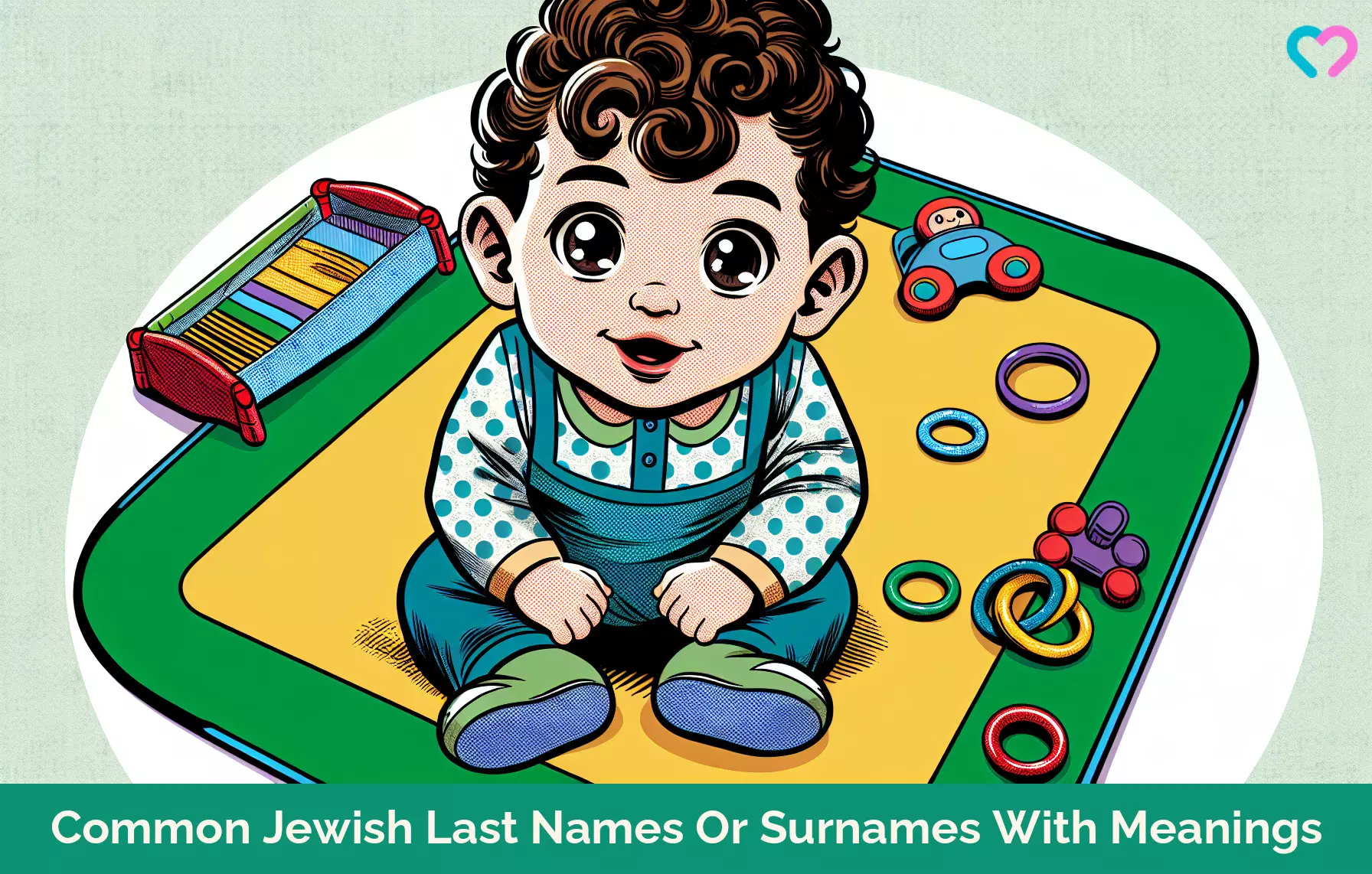
Image: Dall·E/MomJunction Design Team
Did Jews always have a surname? Discover how names have been used to identify and connect Jewish communities.
References
- The Memi De-Shalit Database of Jewish Family Names at ANU – Museum of the Jewish People; Museum of the Jewish People
https://dbs.anumuseum.org.il/skn/en/c6/e23552319/אודות/The_Memi_De_Shalit_Database_of_Jewish_Family_Names - 10 Keys to Understanding Many Ashkenazi Surnames
https://www.chabad.org/library/article_cdo/aid/4825070/jewish/10-Keys-to-Understanding-Many-Ashkenazi-Surnames.htm
Community Experiences
Join the conversation and become a part of our nurturing community! Share your stories, experiences, and insights to connect with fellow parents.
Read full bio of Shikha Thakur
Read full bio of Srija Chanda Burman
Read full bio of Angela Alex











